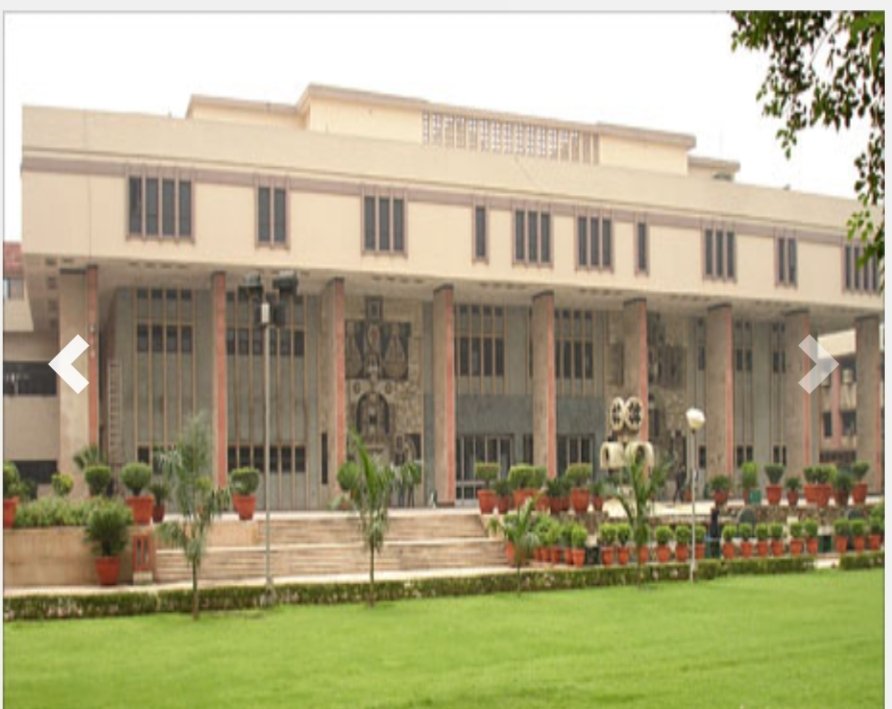The Delhi High Court while passing the final order in the case of Glowsun Powergen Private Limited vs Hammond Power Solutions Private Limited on May 28, 2024 extended the mandate of the Arbitral Tribunal by one year beyond the extension of the time-period of six months as stipulated in section 29(A) (3) of the Arbitration and Conciliation Act, 1996.
The primary issue put up before the bench of Justice Dinesh Kumar Sinha by the petitioner’s counsel was whether there can be an extension of the mandate of the Arbitral Tribunal, which had expired, and subsequent regularization of the arbitration proceedings.
Case Background
Glowsun Powergen Private Limited filed a petition under Section 29(A) of the Arbitration and Conciliation Act, 1996, seeking a one-year extension for the mandate of the Arbitral Tribunal, which had expired on February 29, 2024. The respondent, Hammond Power Solutions Private Limited, opposed the extension, arguing that the mandate could not be extended since the date of the expiration had already passed.
Arguments
The petitioner contended that despite the expiration, the extension was necessary to conclude the arbitration proceedings. The delay in arbitration was acknowledged by the hon’ble justice, but the petitioner emphasized the efforts and resources already invested in the ongoing proceedings.
The respondent, in reply to the assertions put forth by the petitioner, underscored that the arbitration proceedings had endured substantial delays, chiefly attributed to the actions of the petitioner. Furthermore, the respondent contended that the extension of the mandate by six months subsequent to the lapse of the initial 12-month period had similarly elapsed due to delays on part of the petitioner. It was emphasized that the petition for the extension of the mandate was sought only after the expiration of the ongoing extension, thereby rendering such extension unjustifiable.
Rationale Behind Court’s Decision
Analysis of Section 29A:
A. Power of the Court in granting extension of the Mandate of the Arbitral Tribunal after the expiry of the mandate:
The bench initially examined whether the mandate of the arbitral tribunal is extendable by the Court even after the expiration of the mandate of the tribunal. In determining such right of the court, reliance was placed on KMP Expressways Limited vs IDBI Bank Limited , which had placed a further reliance on ATS Infrastructure vs Rasbehari Traders, where the Delhi High Court bench comprising of Justice Sanjeev Narula was not inclined to accept that, section 29A bars applications submitted after the expiry of the mandate from being entertained, as stated in the aforementioned section, “…the mandate of the arbitrator(s) shall terminate unless the Court has, either prior to or after the expiry of the period so specified, extended the period…”.
Further reliance was placed on ATC Telecom Infrastructure Private Limited v Bharat Sanchar Nigam Limited , whereby the Delhi High Court bench comprising of Justice Sachin Datta held that the grant of extension of time is permissible even if the petition under Section 29A has been filed after the expiry of the time period and categorically disagreed with the findings in the case of Rohan Builders (India) (P) Ltd. v. Berger Paints India Ltd, wherein Justice Moushumi Bhattacharya held that petitions seeking extension of time cannot be entertained after the expiry of the mandate, on grounds that the legislature has explicitly introduced the word “terminate” in Section 29A(5), as opposed to “revival” or “renewal” of arbitral proceedings upon filing of the extension application.
Hence, the bench of the Delhi High Court elucidated that the mandate of the arbitral tribunal remains subject to extension even subsequent to its expiration; however, such extension necessitates the presence of a “sufficient cause” warranting the extension.
B. Analysis of “Sufficient Cause” for extension:
The Delhi High Court bench comprising of Justice Najmi Waziri in KMP Expressways Limited vs IDBI Bank Limited analysed the condition of extension of time by considering the considerable amount of time, effort, energy and finances invested in conducting the arbitration proceedings by the parties as a ground for sufficient cause under section 29A(5) of the Act.
Reliance was placed on Iqbal Singh vs Naresh Kumar wherein the Delhi High Court bench comprising of Justice Sachin Datta considered the substantial amount of time spent by the parties and was inclined to grant a suitable award of extension of time to ensure that the elaborate arbitral proceedings are not rendered futile.
The court after analysing it’s power in granting extension after the expiration of the mandate on the condition of sufficient cause stipulated under Section 29A(5), held that though the present arbitration proceedings have been going on for two and a half years and the parties and the learned arbitrator have already invested huge efforts in reaching an amicable solution and thus would make it unadvisable to dispose off the proceedings completely by not extending the mandate.
Justice Dinesh Kumar Sinha, therefore, allowing the petition, extended the mandate by one year with the directions to the parties to not to cause any delay and requested the Learned Arbitrator to expedite the proceedings.
Conclusion
This judgment underscores the judiciary’s flexible and pragmatic approach in arbitration matters and serves as a crucial reference for future arbitration cases, particularly those involving delays and extensions post the mandate expiration by the interpretation of Section 29A(5) of the Arbitration and Conciliation Act, 1996. By allowing the extension with the condition of “sufficient cause,” the court ensures the continuity and efficiency of the arbitration process while balancing the rights and interests of the parties involved. It highlights the importance of judicial discretion in balancing procedural adherence with practical realities, ensuring that arbitration remains a viable and effective mechanism for dispute resolution in India.
Authors: Aditya Ojha & Kripal Ghosh

